Serbia: Green waves washing over polluted land
Citizens’ growing concern fueled by industrial investments and the urgent need to solve environmental issues has resulted in the election of Serbia’s first Green Party to parliament.
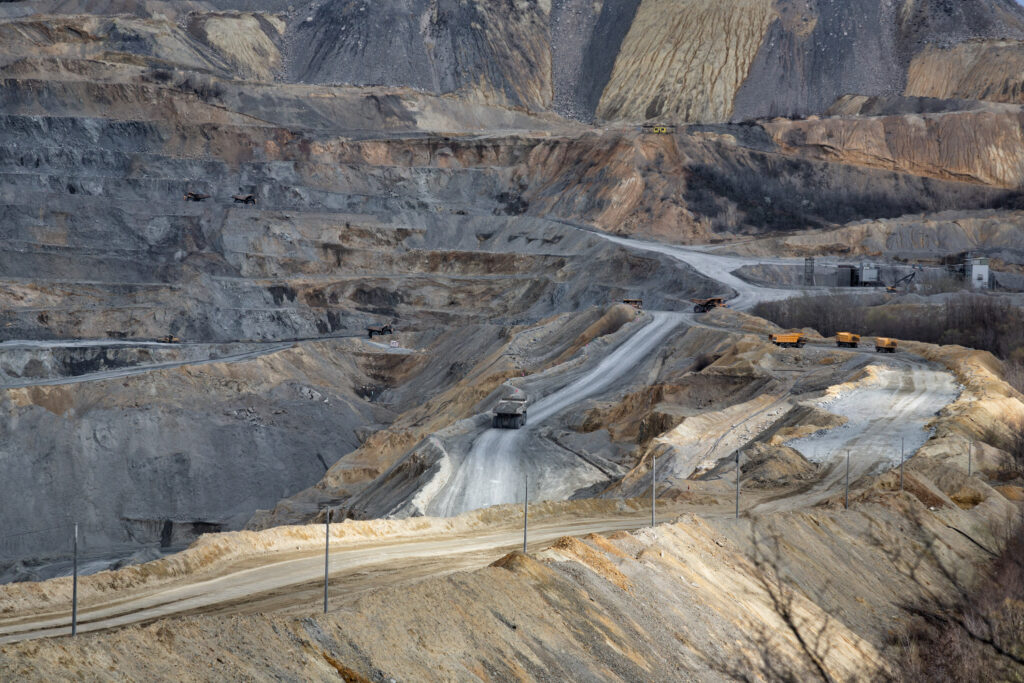
Citizens’ growing concern fueled by industrial investments and the urgent need to solve environmental issues has resulted in the election of Serbia’s first Green Party to parliament.
As Miodrag Živković recounts the events surrounding the expropriation of his land by the Zijin company, the unyielding smell of sulfur and ashes invades the nostrils.
Slatina, where the 58-year-old’s family has lived for decades, is a Serbian village in the region of Čukaru Peki, just a few kilometers from the town of Bor. Zijin, the Chinese multinational, is rapidly developing the infrastructure there to exploit a new copper and gold deposit. New industrial facilities are being built on the plain, while the exploitation of ores has already begun.
Zijin began operating in Bor in 2018. It acquired 63% of the old and indebted, state-owned mining and smelting company RTB-Bor, and promised to invest €1.5 billion in six years. By acquiring the rights of American and Canadian companies, Zijin secured all the mining rights in the area and quickly completed land expropriation procedures.
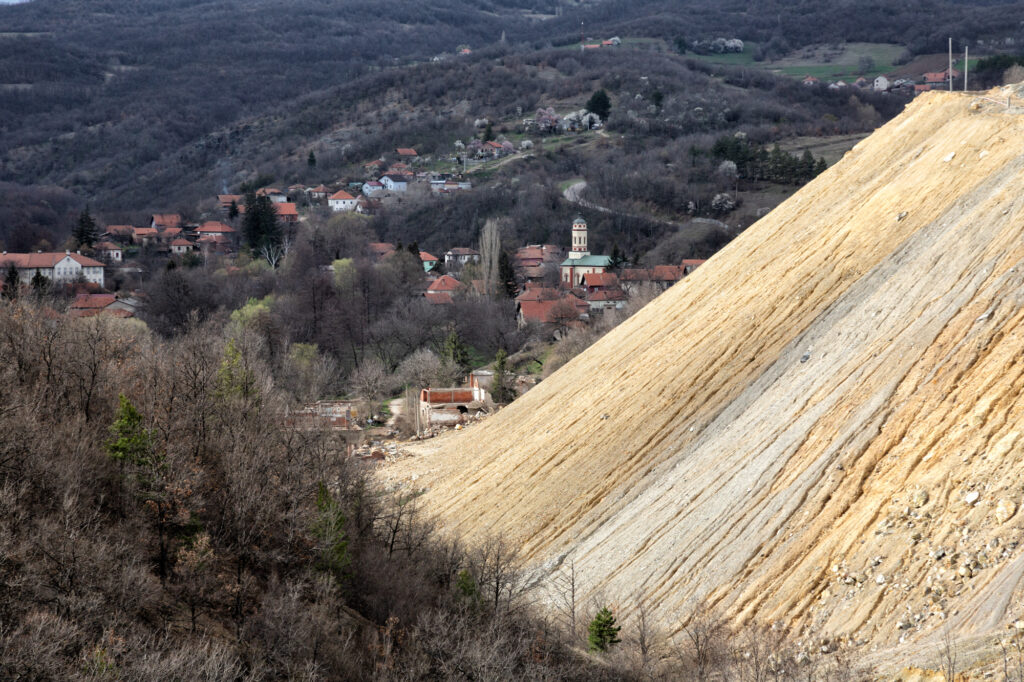
Miodrag Živković is one of the few locals who did not sell and, as he says, he does not plan to sell, since the company is offering 50% less than the value that was set by the national authority.
“The company wants to pay as little as possible. While the price was set at 28 million dinars, they initially offered 6 million (a little over €50,000), then 8 million and a while ago, 14 million. Most of the people sold immediately since their financial situation is very bad.”
The law on expropriations in Serbia provides for fast-track procedures when an investment is in the national interest. Thus, the land was, in practice, expropriated and Miodrag Živković, along with others, ended up in court claiming the price they consider fair.
With Serbia’s EU membership bid pending for over a decade, the country (in need of foreign investment and foreign exchange inflows), is increasingly adopting foreign investments and President Aleksandar Vučić is criticized of changing the rules of the game to their benefit, turning a blind eye to their environmental footprint and work practices that, at times, refer to trafficking.
In April, during three elections (presidential, national, local) Solomon visited Serbian cities where the investment activity of conglomerates is developing and spoke with the citizens who have taken matters into their own hands to protect the environment.
Miodrag Živković cultivated his land, producing food for the animals he traded, and timber − tasks that he has ceased after the expropriation. He, along with a few other families, are the only ones that have refused Zijin’s offers. For him, the reason is mainly sentimental.
“I did not want to sell our land, which belonged to my father and grandparents. Also, there is no price that will compensate us for the pollution of the air and the earth.”
Pollution from mining activity has existed since the time the mines first appeared in the Bor region. The mobilization of the local residents and the declining activity of the previous (state-owned) company had relatively alleviated the problem, but the arrival of the Chinese multinational and the increase in production has once again raised the concerns of residents.
Miodrag Živković shows us the air pollution measuring station in the center of the village − a fenced-in kiosk which produces a hollow incessant buzz.
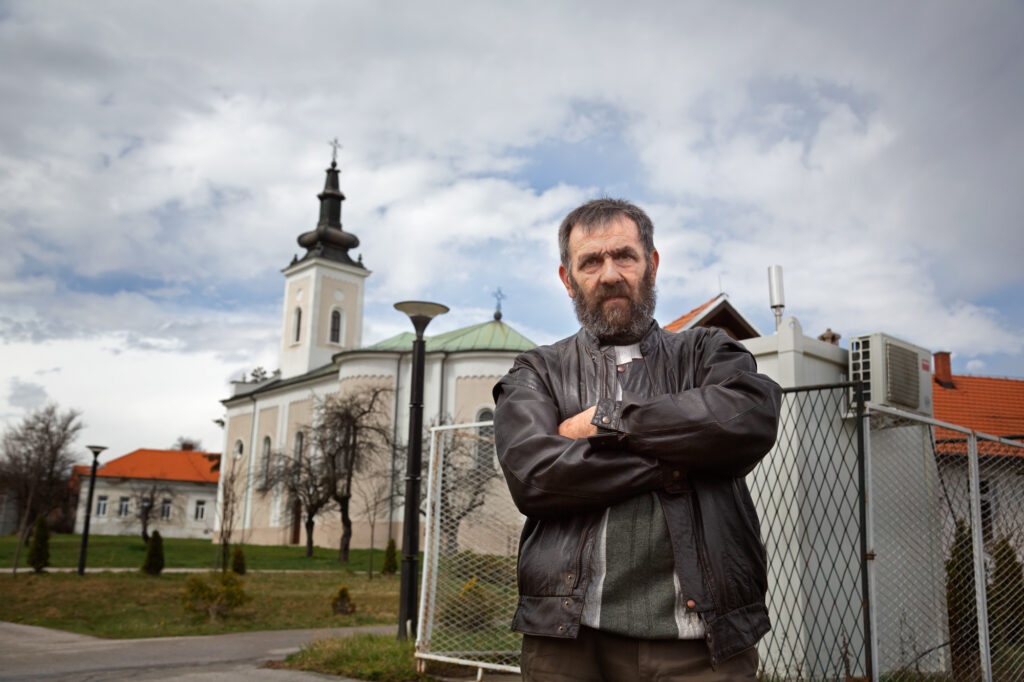
“The station measures air pollution, but it does not measure heavy metals and microparticles in the atmosphere. I go to another one, a kilometer from the village, which also tests for heavy metals, and so I know that arsenic pollution is many times higher than allowed.”
Inspections of the Bohr plant in 2019 and 2020 have certified the presence of sulfur dioxide (SO2) at levels four to eight times higher than the legal limits. The pollution led to lawsuits against company officials for releasing hazardous substances into the air and failure to take action to reduce pollution. In October 2020, the company was fined 450,000 dinars (approximately €3,840) for air pollution.
Zijin responded to the inspectors’ accusations and pressure from the local community and authorities, saying that it had installed special equipment to deal with the pollution and that it was planning its further development. In late March 2021, the Serbian Ministry of Mines and Energy ordered the company to suspend operations at one of the Bor mines and immediately complete a sewage treatment plant. The company also temporarily closed the smelter to renovate it, aiming to update its operation to environmental standards and increase production capacity.
If sulfur dioxide is the usual culprit, arsenic poses a great and silent danger. The heavy metal, in large concentrations, is associated with carcinogenesis – this is the big problem that resides in the bowels of the earth, along with the treasures of gold and copper.
The existence of arsenic is mentioned in the feasibility study of the Canadian company Nevsun, from which Zijin acquired the license for the exploitation of the first level of the deposit in Čukaru Peki.
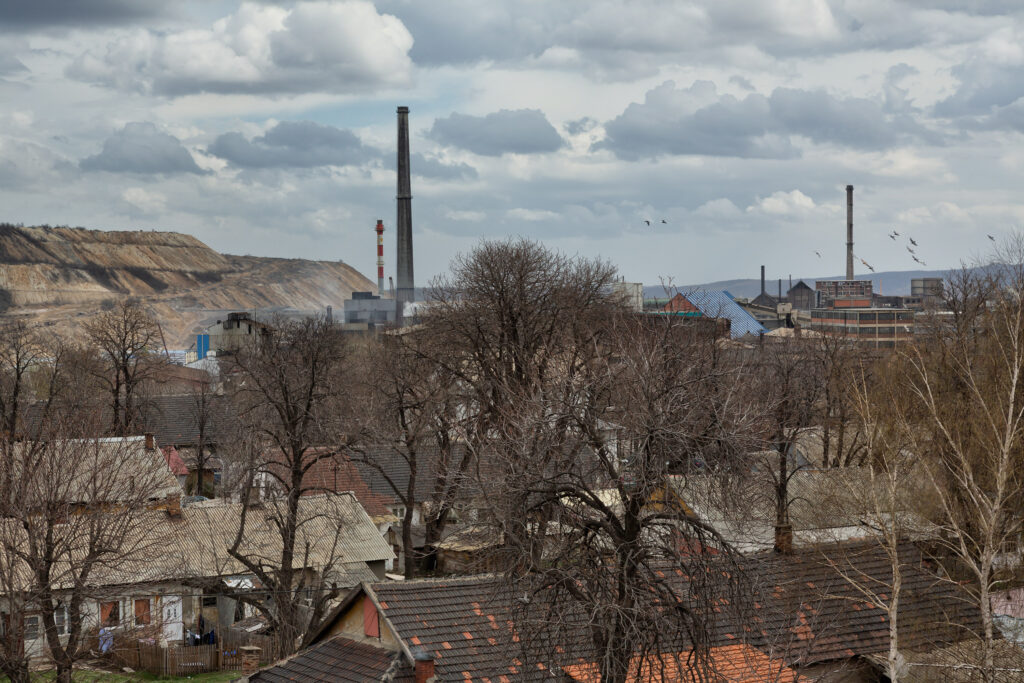
Miodrag Živković is worried that the little land he has left is contaminated, and he does not trust the results he received from the laboratory where he sent samples for analysis. Without any confidence in the institutions, he decided to run as a candidate for city councilor in the elections held in early April.
“For 50 years, the authorities have been promising to tackle the issue of pollution. Mining has been in the area for over a century, we know very well that this is not a chocolate factory. We tried to find out exactly what the plans are for our area, but we were unable to gain a clear picture no matter how many times we talked to the company and the ministry. The goal is not to close the mines, or for the company to leave, the goal is to be treated with respect.”
The image of open mines in the city of Bor is frightful. A few meters from where our car stops, a crater of hundreds of meters begins. On the opposite side, a machine incessantly empties debris from excavations into the chaotic funnel that decades of mining have created.
The security guard who immediately approaches, politely reminds us to be careful where we step, more concerned about the earth crumbling beneath our feet than our presence there. The digging has spread around the perimeter of the city and the ore processing industry, which are within walking distance. It’s a process that has taken many years, while the land around Bor is slowly disappearing. But at the same time, it’s the only substantial financial boost to the region. A life relationship in search of an almost impossible balance.
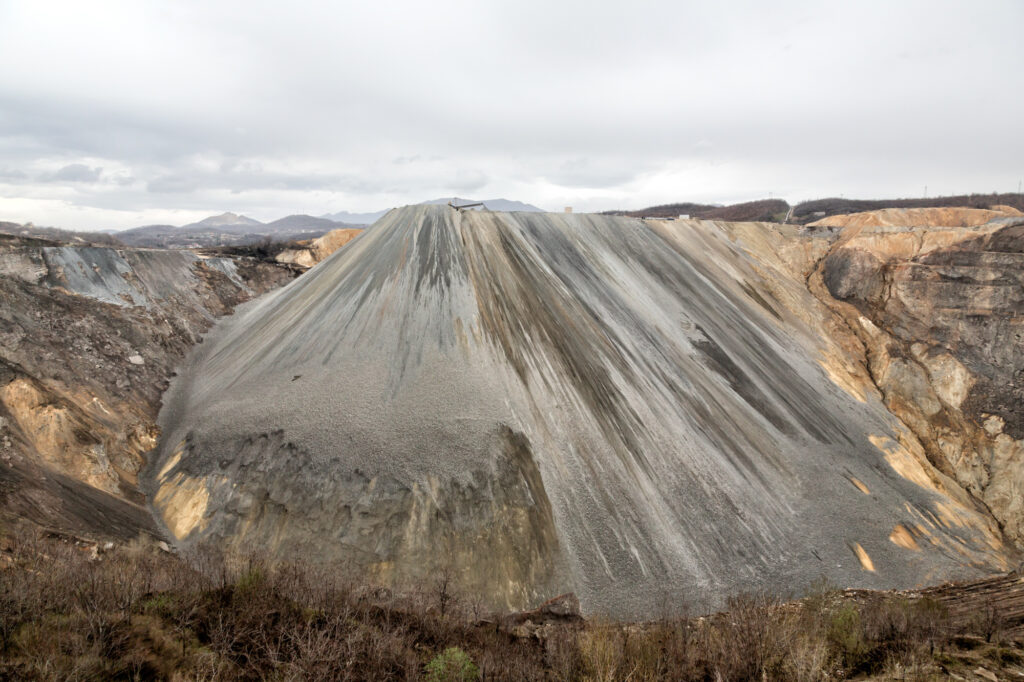
Pollution, the reactions of the local community, the lengthy control and sanction procedures, the guarantees provided by the company for effective treatment of pollution and some ineffective fines is the vicious circle that Irena Živković has been following for many years.
In 2015, Živković participated in the mobilization of the local community that forced the state-owned company to reduce production rates and therefore air pollution. When Zijin arrived, they dramatically increased production, and the problem again became an immediate priority for Živković and many others.
After seven years of activism and successive disappointments, Živković decided to run in the elections with a small party. “The most important thing for Bor is for the institutions to be really independent” she says.
Živković believes that the problem starts with the entanglement and corruption that prevails at the local and national levels. A situation that many believe is maintained by President Vučić himself, who closely monitors and intervenes in issues related to the development of foreign investment in the country.
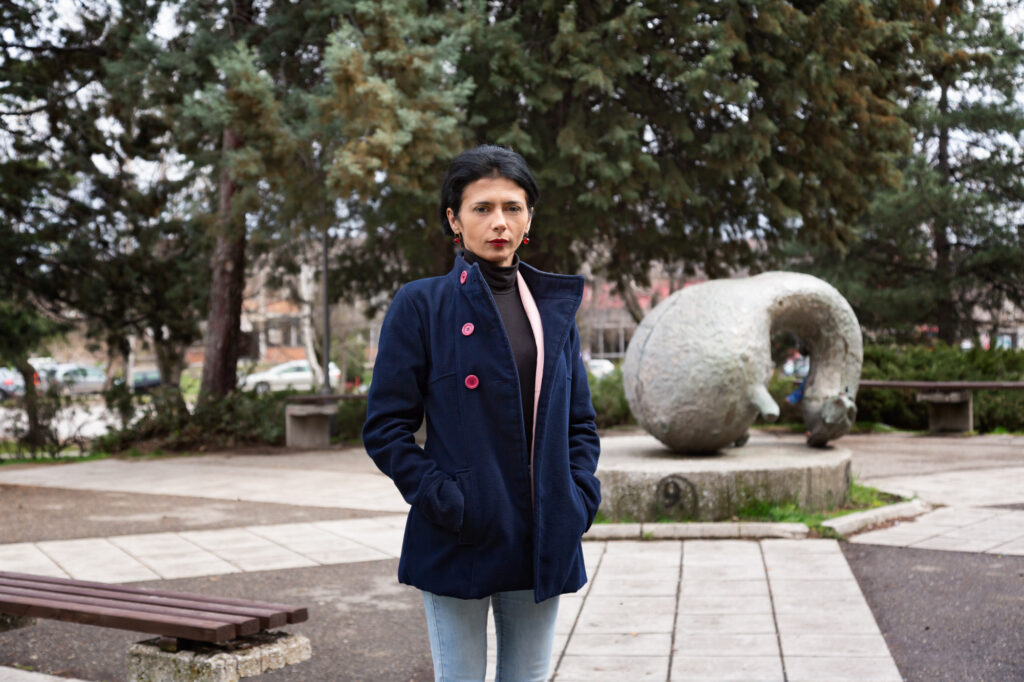
A key example is the transnational agreements that allow the import of labor from countries in Southeast Asia. Cheap immigrant labor offered and paid for outside of the national legal framework and under very difficult living conditions.
One such case came to light last November in the city of Zrenjanin, where a huge car tire industry is being built−an investment by Chinese conglomerate Linglong.
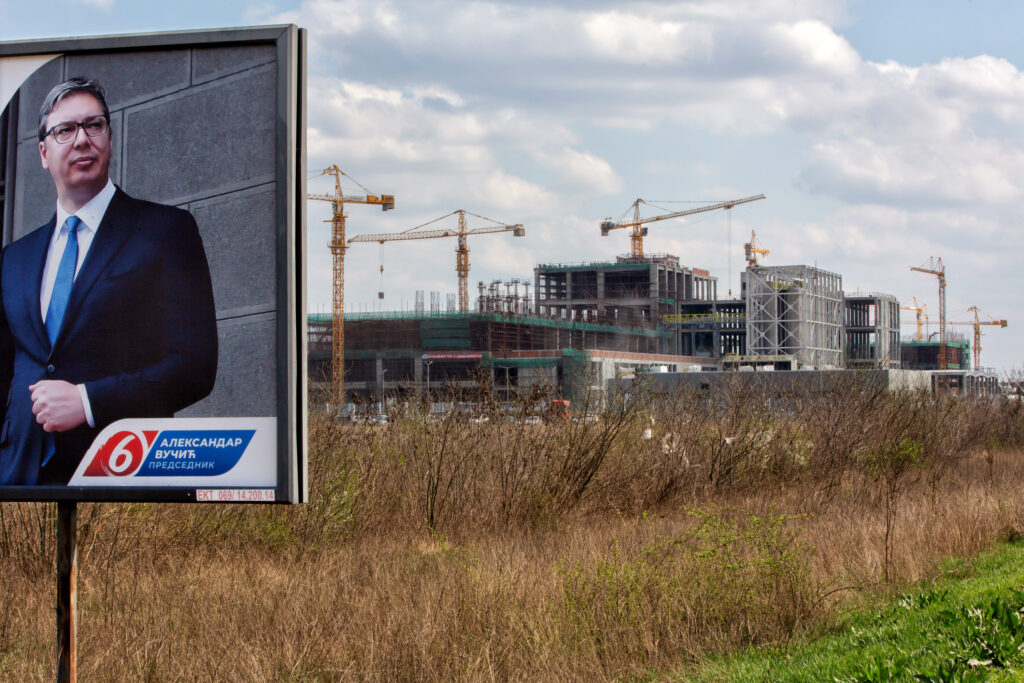
The projects of Linglong International Europe D.O.O. Zrenjanin, the Serbian subsidiary established by the Chinese multinational Shandong Linglong Tire Co. LTD, are carried out respectively by two subsidiaries of Chinese construction companies.
They employed hundreds of Vietnamese workers who, according to lawyer Danilo Ćurčić, program coordinator at A11, the Initiative for Economic and Social Rights, a group that provides legal aid to victims of labor exploitation, worked on onerous terms.
Last November, A11 conducted a review of an old industrial zone on the outskirts of the city where the workers lived, finding very poor conditions.
“In order to work, they have signed unfavorable contracts which stipulate that if they quit the job, their family will have to pay compensation, as well as unlawful staff regulations, which are reminiscent of trafficking conditions,” Ćurčić told Solomon.
According to UN experts who investigated their employment status, the workers secured their jobs by paying employment agencies in Vietnam between €2,000 and €4,000, to cover transportation, visa and accommodation expenses. Last January, UN experts expressed concern about the status of workers: “in particular allegations that they
were trafficked to Serbia for purposes of forced labour, servitude or slavery or
practices similar to slavery. We are gravely concerned that they are allegedly forced
to work and live in conditions that pose a serious risk to health and to life”.
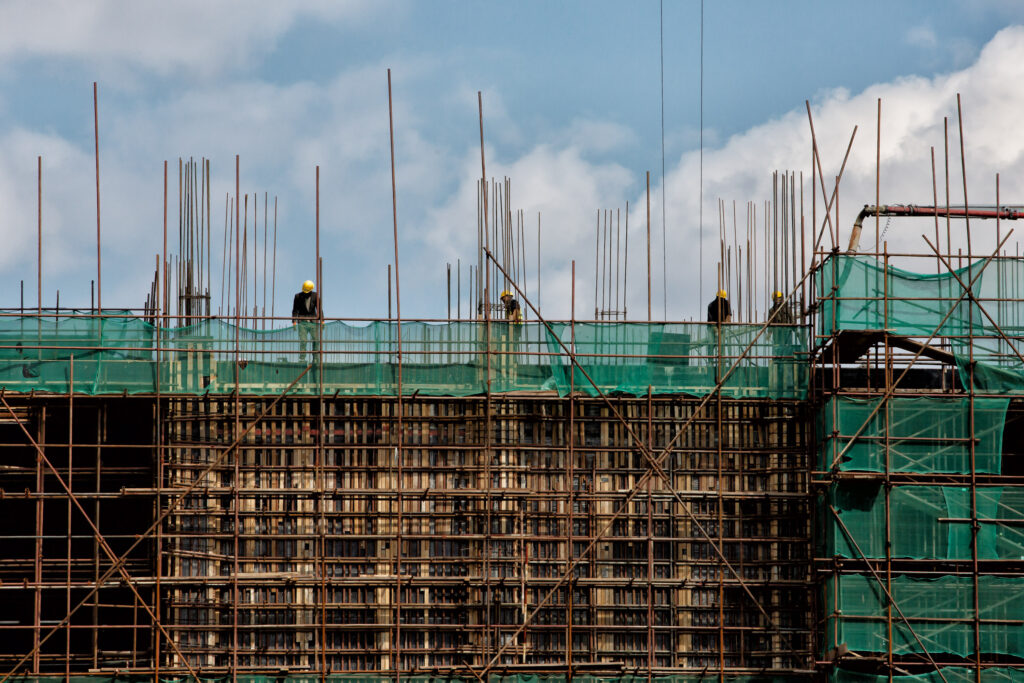
The Serbian government has offered strong incentives to ensure this investment is made in Serbia and not in any other Central or Eastern European country, in part by offering the land on which the industry is being built for free and promising €75 million in funding to subsidize 1,200 job openings. This is a policy that raises a number of issues, according to Ćurčić.
“The government is manipulating the conversation around the issue so that anyone who criticizes Linglong seems like they are opposed to the country’s progress. Also, numerous inspections have been carried out by competent authorities which did not reveal any serious issues, which is simply impossible. “Clearly the investment will create significant economic activity, but what the price will be in terms of labor and human rights and environmental conditions is an important question.”
Following the reactions, the company transferred the employees to containers with better living conditions. Linglong claims that the investment to complete the industry will amount to €800 million, will employ 1,200 people and will produce 13 million tires a year, most of which will be exported.
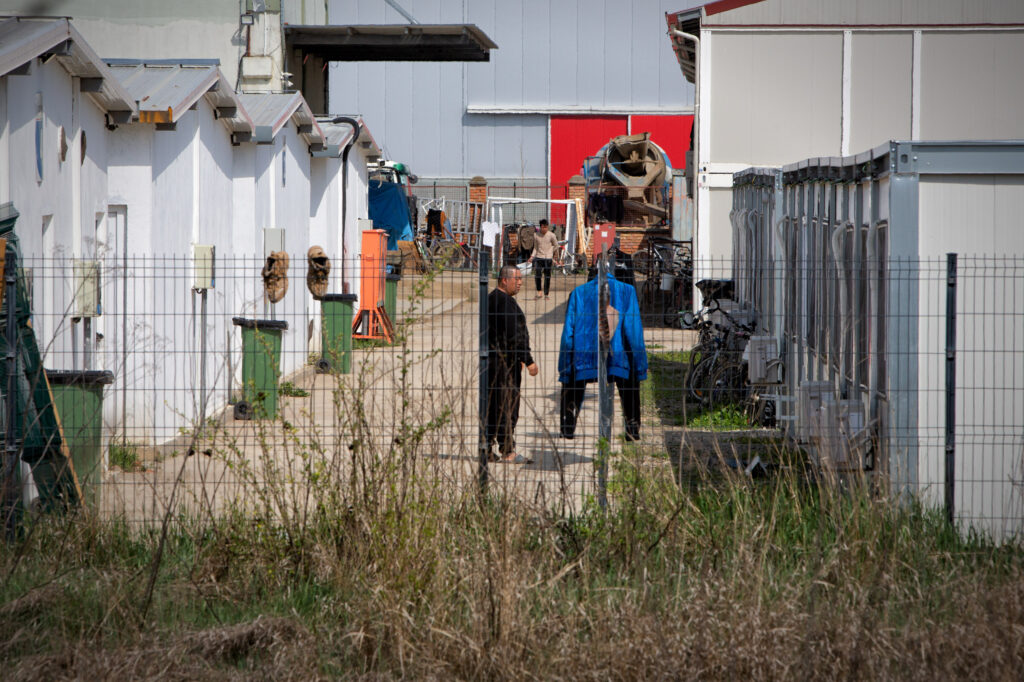
To understand the dynamics that define Chinese-Serbian relations and how they translate into investment in practice, one must understand Serbian priorities, says Stefan Vladisavljev, program coordinator at the BFPE Foundation and one of the most specialized researchers of Chinese strategy in the Western Balkans.
“It was especially symbolic that the day the Belgrade-Novi Sad railway line was inaugurated, (which took eight years to complete as part of a project linking Belgrade to Budapest), the government signed another deal for a Chinese-owned investment for the creation of the Novi Sad bypass. Serbia desperately needs better infrastructure and foreign exchange inflows, and it will not deny easy options when they exist, and the Chinese are an easy choice regardless of terms and other issues.”
To see Vladisalevic’s words translated into numbers, it is enough to look at a table of Chinese foreign direct investment in Serbia. From €2 million in 2010, China has become a major foreign investor in the country in a decade, with half a billion in investments in 2020 alone. The development is of particular geopolitical importance, even if the EU remains the number one investor overall.
The ambiguity of the EU and the slow accession process for the countries of the Western Balkans have sent the message that countries like Serbia must seek solutions elsewhere. Vučić’s choice to open the door to Chinese interests is largely the result of this search for solutions to problems that have remained unsolved for decades.
In a Belgrade café, a mining consultant (with an international career and experience working with several multinationals) explains to Solomon that few investors can run such complex investments as fast as the Chinese. “If you choose this, then you also choose their business model. The person who will be sent to manage the investment will not be the man in the suit who you signed the agreements with, and he won’t care about environmental and labor standards. He will do everything he can to manage the investment and increase production.”
Although Chinese investment is at the center of the discussions, the case that escalated into a political conflict, forcing Vučić to back down, involved plans for a huge lithium and borite mining investment in the Jadar area by the Anglo-Australian multinational Rio Tinto.
The passage of a new law that made aggressive land expropriations even more radical
and the amendment of an old one on the conditions laid down regarding national referendums have been interpreted as another surprise move by Vučić, who many accuse of always changing the rules of the game to serve his interests. A call to action from environmental and activist groups to set roadblocks to oppose the Rio Tinto investment, unexpectedly turned into huge demonstrations between November 2019 and January 2020.
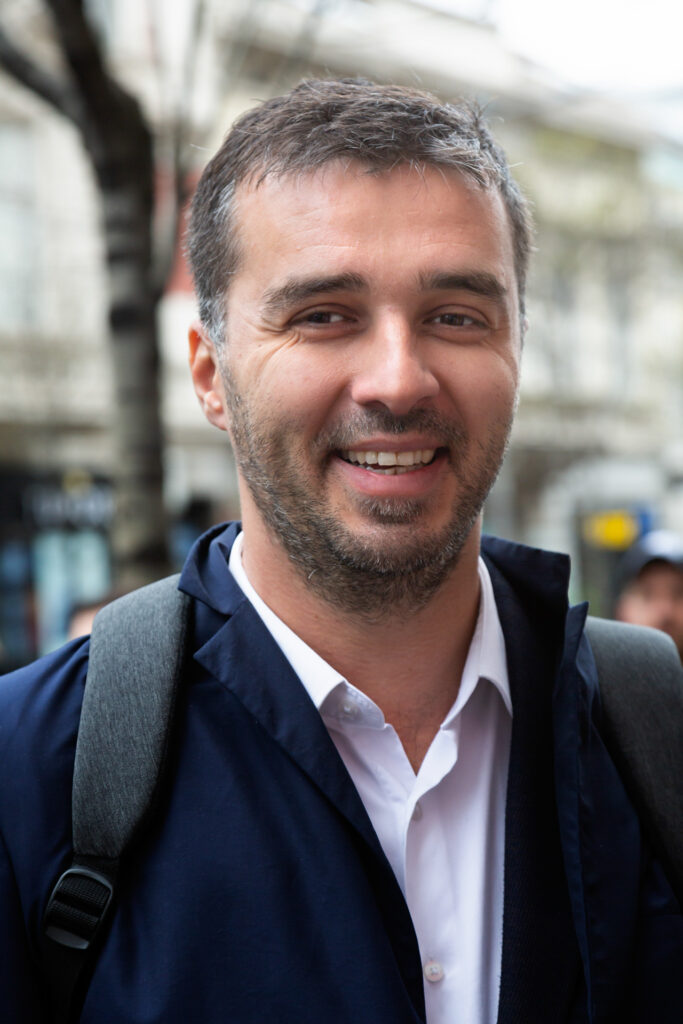
Savo Manojlovic, a lawyer who heads the Kreni-Promeni (Move-Change) civic group, which has become a central figure in the protests, admits that he did not expect the magnitude of the reaction. “Everything exploded and we were in the middle. Within two weeks I realized that I had lost all privacy and found myself in a new reality. I still do not have time to process what has happened,” he told Solomon as he stood at the entrance to the building where Kreni-Promeni was collecting signatures to submit a proposal for a law banning lithium mining in Serbia.
“According to the law, we need 30,000 signatures to submit a citizens initiative but we already have more.” Eventually, the campaign will garner 38,000 signatures in 15 days and have the opportunity to make its way to Parliament after the election.
It is a few days before the April 3 national elections and, as Manojlovic speaks, he is constantly interrupted by people coming to greet him or introduce themselves, as a politician in an election campaign. But he is not a candidate.
Ljudi nisu bez energije, ljudi nisu bez vizije, ljudi nisu bez hrabrosti, ljudi nisu bez upornosti.
Ljudi su moć. pic.twitter.com/spcI0XYaIH
— Kreni-Promeni (@KPromeni) March 31, 2022
“We said from the beginning that we are a citizens’ movement, not a political party. And that we are asking for the withdrawal of the unconstitutional bills for the expropriations and the referendums,” he says, answering to why he doesn’t want to use this opportunity to become a politician.
This is most likely the only time in ten years that Vučić has backed down during a political conflict. In the middle of the pre-election period and feeling the pressure from citizens’ groups and their actions, at the end of December he announced that the law on expropriations would return to Parliament for reconsideration, and the government then put the issue on the back burner. In the meantime, the issue had been internationalized by a European Parliament resolution in mid-December on “forced labor at the Linglong plant and environmental protests in Serbia,” which condemned, among other things, acts of violence by extremists and hooligans against peace activists.
Reference was made to the incident, where supporters of the Progressive Party who had taken to the streets for a rally attacked the activists who were blocking the road but also to the “increase of abusive language, intimidation and even hate speech against members of the parliamentary opposition, independent intellectuals, NGOs, journalists and prominent figures, including from members of the ruling parties.”
One month later, the government scrapped all the mining licenses it had granted to Rio Tinto, saying that they are permanently abandoning the prospect of development of the mine worth about €2.4 billion. The decision came in the wake of the Serbia-Australia debacle over tennis player Novac Djokovic, who was deported from Australia in mid-January after trying to enter the country without meeting national covid vaccination requirements. Whether this was another ploy by Vučić remains to be seen. However, according to recently-published research data, the company has continued to buy land in the area even after the announcement of the cancellation of mining licenses.
Vučić has proved a shrewd politician, something that even his most determined political opponents recognize. His actions may have defused the dynamics of the mobilizations, and controlled the pre-election landscape. However, he was confronted with a huge social and political awakening, something that the country hasn’t experienced in many years. The main opposition parties, which had boycotted the previous elections (resulting in absolute domination of Vučić and his party), were very organized in this year’s triple elections: presidential, national and local elections in several cities including Belgrade. The election included a coalition of activists and academics who united to form the country’s first all-green party, called Moramo, or We Must.
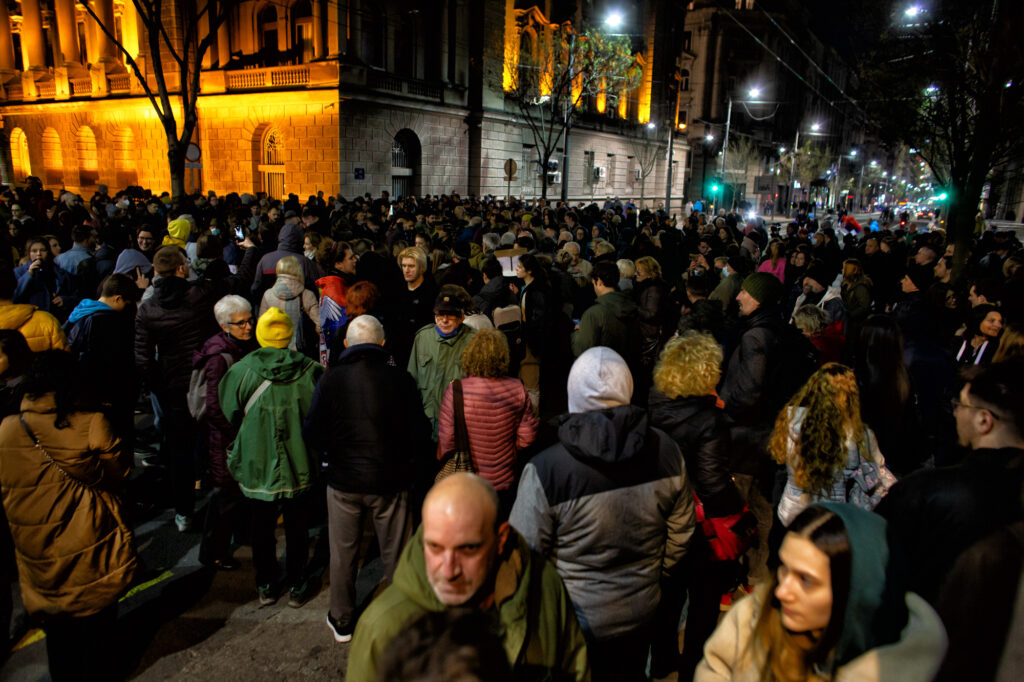
Following their campaign initiatives, one realizes that it is in fact a group of active grassroots citizens from the generation that clashed with the Milošević regime and young people who bring modern concerns to the forefront, fueled by the ongoing debate about protecting the environment, improving urban living, and raising issues of transparency and the rule of law.
It is a group that can easily reach a progressive critical mass in Belgrade, but at least for the time being, would hardly appeal to citizens living in remote cities plagued by deindustrialization, who struggle to maintain the remnants of the old Yugoslav heavy industry, the only lifeline that even today can ensure their survival.
Biljana Stojković, a biologist, activist for 20 years and a professor at the University of Belgrade’s School of Biology, accepted Moramo’s offer to run for president, in essence symbolically, as Vučić’s dominance remains undisputed. “Things in the political arena are worse than ever and this is Vučić’s great crime. He created a toxic public sphere,” she says, commenting that while she was an activist, she appeared on television more often than when she was a candidate. She wears a miniature whistle around her neck − a nod to activists who clashed with the Milošević regime almost twenty years ago. Her platform is one of transparency and accountability, and a direct attack on the impunity of a one-party elite that has taken over the state and the halls of power.
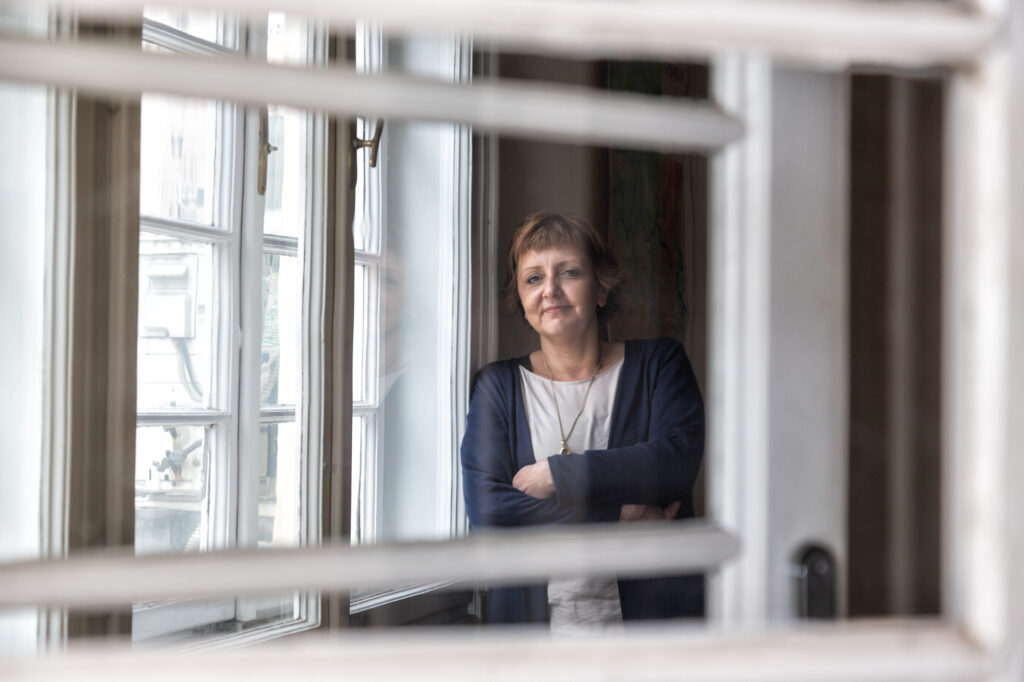
This dominance is reflected in the media, where according to Zoran Gavrilović, of the NGO Bureau for Social Research that monitors the national media, in the months leading up to the election, Vučić appeared on television more than all the other government and ruling party officials combined. In a way, Vučić seems to be everywhere. He’s on billboards along the national highway and in Belgrade. As he himself commented in a pre-election TV commercial, where he walks out of a refrigerator in a couple’s apartment, “it is important to be able to reach every citizen of Serbia”.
While talking, Biljana Stojković stands near the balcony of her political office and looks out over the new skyscrapers of Belgrade Waterfront, perhaps the most iconic of the major investment projects launched under Vučić in recent years.
Like a giant Lego-land, it looks like it was plonked down on the banks of the Sava River in the Savamala area. Declared a project of national importance by a special law in April 2015, the investment circumvented many legal obstacles and slow administrative procedures, making it possible to avoid public tenders for projects related to the investment.
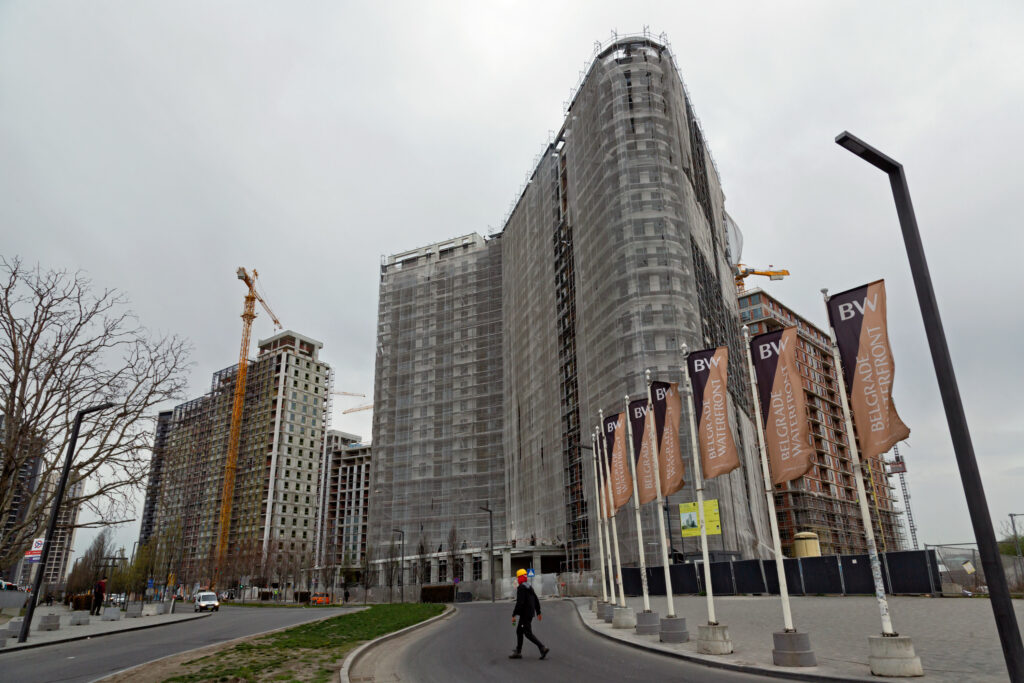
The open call for the design of residential, tourist and commercial real estate on the 170 hectares of land granted by the government for investment, took place in the United Arab Emirates, where the main investors come from. According to Ksenija Radovanović, architect and town planner who has monitored the development of Belgrade Waterfront from its inception, no Serbian architects took part in the open call.
“Even today we do not know if we have seen the entirety of the contract between Serbia and the investors. Nor can one see with transparency where the resources invested in the development of the building come from,” said Radovanović.
There is still much to be known about this issue, which many Serbs consider the ultimate example of lack of transparency. On April 25, 2016, bulldozers stormed Savamala, demolishing buildings. During the incident, masked men looked for possible eyewitnesses, confiscated their mobile phones and even tied them up. According to an investigation by the then Ombudsman Saša Janković, police ignored calls for help, and there were indications that government officials and politicians were involved. In fact, no one was ever punished, except for one police officer who was sentenced to five months’ probation for breach of duty.
Last March, Veljko Belivuk, the jailed ringleader of a criminal group whose members had been seen to offer protection during an event of Vučić’s inauguration as President of Serbia in 2017, said he was ready to provide information on a number of criminal acts still pending before justice, including the demolition.
Belgrade Waterfront’s skyscrapers were not the only thing to emerge from Savamala’s dark story. On the outskirts of the area, below the Branco Bridge, are the offices of an activist group called Ne Davimo Beograd, or Don’t Let Belgrade Drown. In a bar next door, green party supporters and activists met on election night in anticipation of the results. According to Serbian standards, the elections were carried out smoothly. There were incidents where a small party leader was physically attacked at a polling station, while he was recording Progressive Party members allegedly monitoring the arrival of their voters with unofficial voting lists.
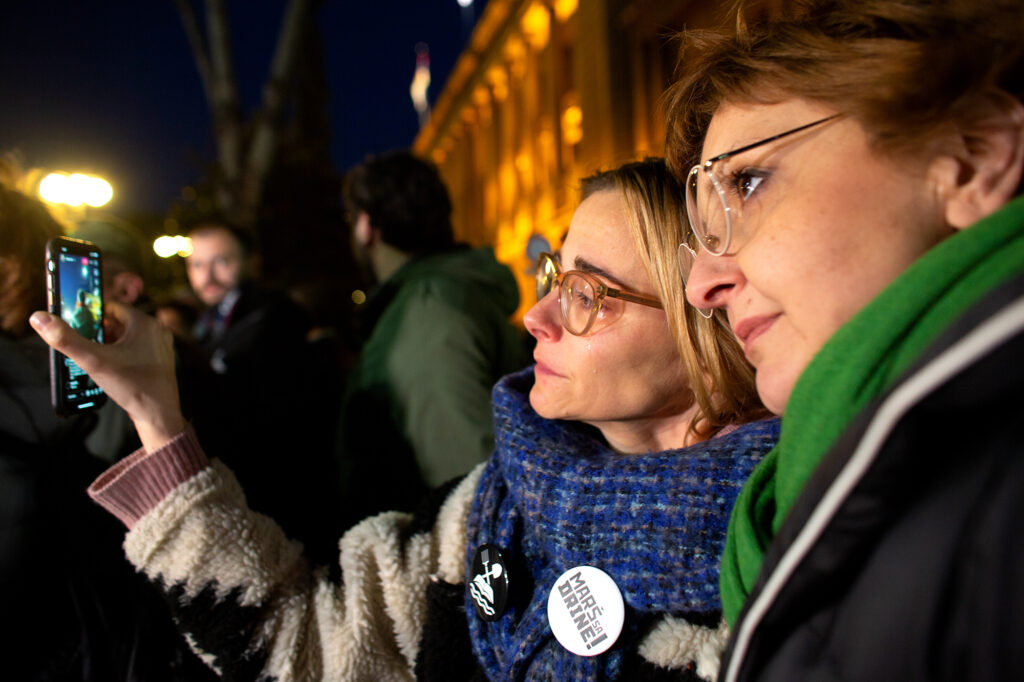
During election night, it was confirmed once again that Vučić and his party are in complete control of the country. This time, however, the first green party was voted into Parliament and the Belgrade municipality. The result will remain controversial as the Progressive Party and the Socialists have 55 councilors who also function as mayoral electors, as well as the ideologically and politically completely diverse, opposition. 55-55. Perhaps it’s still a small obstacle to Vučić’s power or it might be the beginning of another story. A few weeks after the election, Vučić will remain open about the possibility of new elections in Belgrade in a few months. As long as parties and politicians are haggling, it is difficult to know what happens next.
For Biljana Stojković, the result does not change the core issues.
“Vučić waited patiently until the elections and estimated that afterwards, things would go back to business as usual. But we will not let it happen that way. We will fight it.”
Before you go, can you chip in?

Quality journalism is not of no cost. If you think what we do is important, please consider donating and becoming a reader who makes our work possible.